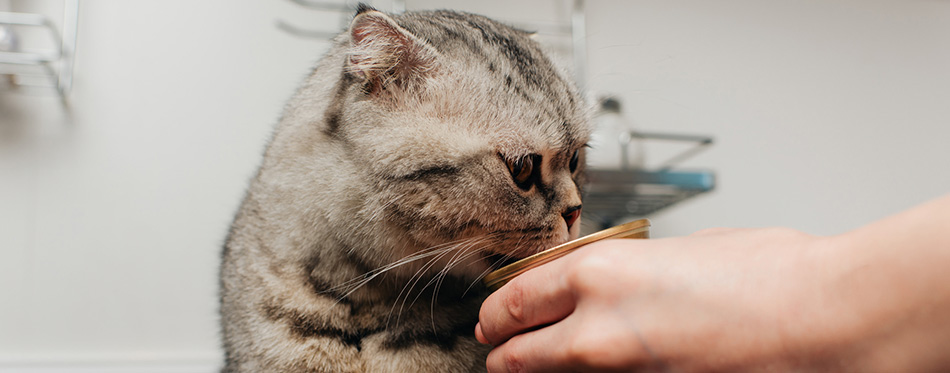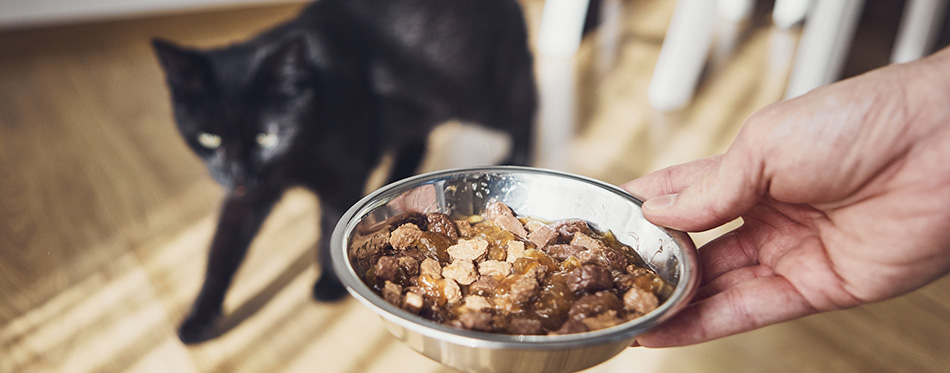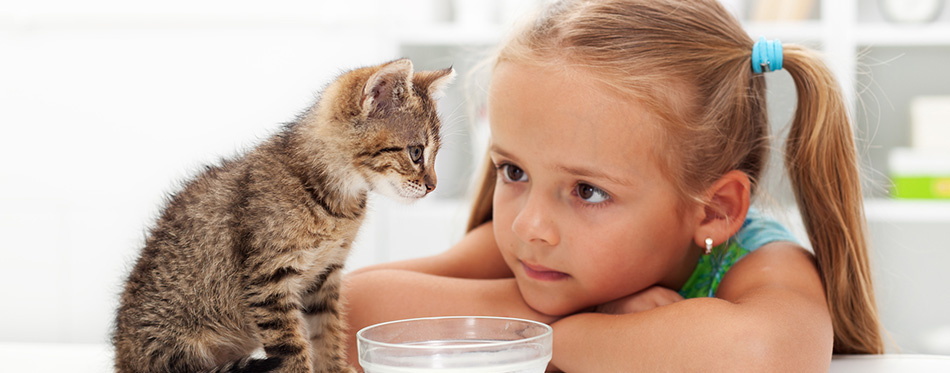Cats have much in common with children. They are playful and curious, and so long as they feel good, they are happy. Their inquisitiveness may expose them, however, to some contagions that can threaten their health. They may eat something or get their paws dirty while outside, leading to health problems. Issues with digestion can lead to sickness and ultimately, an unhappy cat.
Even if you have an indoor cat, making sure your pet has good digestion is important. When it absorbs the nutrients they need, they remain in great health.
You need to, therefore, keep your eyes out for signs of poor digestion. This may include diarrhea or stool that is poorly formed. Some cats also vomit and lose weight, while being listless and having a dull coat are other telltale signs. If you see any of these signs, then you should consider bringing your kitty to the vet.

What Should Your Cat Eat?
Cats are hunters and carnivorous, with their bodies used to a diet full of meat. Even their teeth are designed to hunt and tear the meat off of their prey’s body. Their metabolism and digestive system are also optimized to process diets of high fat and high protein.
Felines can never be vegetarians, specifically because they need nutrients that they can only find in meat. This helps maintain their muscles and keeps their coat shiny, not to mention keeping their immune system in great shape.
The best diet, thus, is one that has enough omega-3 and omega-6 fatty acids, with some vitamins and minerals for good health, plus some fiber for good digestion. In terms of carbs, highly digestible ones are perfect for providing them energy. Top-quality cat food will not only provide this balanced diet but will also contribute to good digestion.
Take a look at our reviews of Dry Cat Food and Wet Cat Food for more options.
Kinds Of Digestive Problems In Cats And Causes
Digestive disorders are not that uncommon with cats, and they range from allergies or intolerance to the lack of the necessary enzymes to digest a certain type of food. Some breeds are also more prone to such issues, like Ragdoll, Rex, and Sphynx. Here are common issues related to your kitty’s digestion.
- Acute Gastroenteritis
This is a short-term problem involving an inflamed digestive tract. It may be due to eating some spoiled food or toxic plants, food allergies, stress, foreign objects swallowed by your cat, or internal parasites.
- Colitis
This is common in younger cats, where the large intestine gets inflamed and your kitty has problems pooing. It may be caused by tumors, changes in food, or allergies.
- Diarrhea
This happens when your feline has an infection or internal parasite, as well as when it eats table scraps or spoiled food. Changes in cat food can cause diarrhea.
- Constipation
Common causes include lack of fiber, dehydration, aging, tumors, hair ingestion, lack of exercise, as well as other metabolic disorders. Find out more about cat food for constipation here.
- Pancreatitis
This happens when the pancreas is inflamed or infected, though the cause is not fully known. It may be due to low blood flow, disease, or infection.
- Irritable Bowel Syndrome
Cats that have food intolerances or issues with passing food through the gastrointestinal tract experience chronic inflammation and discomfort in their bowels.

How To Improve Your Feline’s Digestive Health
Whether or not your cat is displaying symptoms of bad digestion, you might find following these tips useful. After all, you want to ensure that it has a balanced diet full of nutrients that will keep it healthy and happy.
Supplement With Probiotics
The digestive tract is where your cat’s immunity lies, which is why feeding it with good bacteria can contribute to good health and long life. Adding some cat probiotics to your feline’s diet will regulate its digestion. Moreover, it will lessen the chances of poor appetite, diarrhea, vomiting or problems with its stool.
If your pet is also suffering from infection and inflammatory bowel disease, it will benefit from some probiotics, as it adds good bacteria in the gut and boosts the immune system. These products are easy to find and are available in different forms; from pills, powders, and may even be found infused in some treats. For more options head over to our guide on the best cat treats.
Add Some Veggies
Cats are primed for meat-based diet and can never be vegetarian, but this does not mean that adding some veggies cannot do them good. Adding some steamed or cooked vegetables in tiny amounts will boost their immunity and at the same time, reduce the effects of aging. You just need to make sure they are highly digestible to not put an unnecessary load on the intestines.
Some kitties also like eating grass, like wheatgrass or tender oat grass as these soothe their tummies. Peppermint is another option, so having them around the house for them to munch on from time to time is a good idea.
Leave The Grains Out
Felines do not have the enzymes necessary to process carbohydrates, which is why their diets should have no grains on them. Eating carbs will also lead to problems with their digestion, as well as stomach and intestinal pain or discomfort.
Remove Dairy From The Diet
Cats may be lactose intolerant and even if yours is not, it can still lead to some digestive issues or can worsen any stomach problems your pet has. The protein found in dairy products cannot be digested or used by your feline’s body, so it does not bring any benefits. Instead, opt for a diet rich in nutrients like fatty acids, Omega 3 and 6, as well as the necessary vitamins and minerals.
You may also like our article on the Best Vitamins for Cats.

Add Fiber
Much like in humans, fiber helps in digestion. When you add highly soluble or insoluble fiber foods to a diet with enough fat, your kitty’s intestines are able to function best. Even better, add some water or moisture to promote digestion and lessen the ingestion of dry food. For more options head over to our guide on high fiber cat food.
A kitty that has issues with its digestion will not only feel poorly, but it will also be undernourished and sickly. Thus, making sure your pet eats properly and can digest its food well are vital to both its health and happiness. Feeding it high-quality cat food is key, as well as bringing it to the vet when you suspect any issues with digestion.

